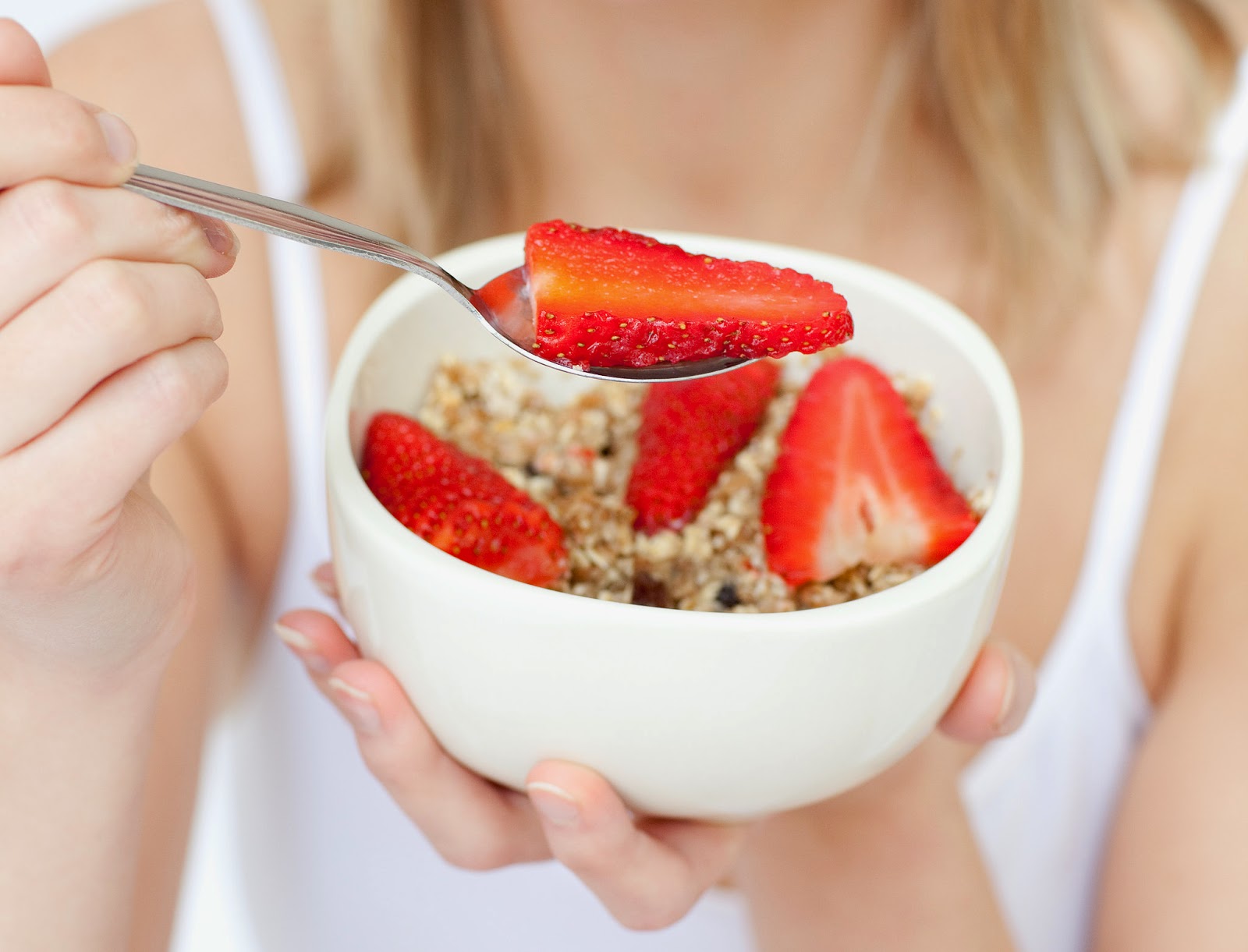I'm going to share with you 5 practical tips on how to turn your body into a fat-burning machine – information that you can implement on your daily basis, both in and out of the gym or any workout environment. A lot of times they say that 'you are what you eat' so it's actually very important that you know how to work on what you eat first rather than just jumping into the workout schedule and hope everything goes as planned. Instead of quantity specific amounts, I'm going to give you simple ideas that you can almost immediately put it to plan in your everyday life. So let's get started.
Eat Fiber
A high-fiber diet decreases fat and
cholesterol absorption in your intestine (preventing fat storage), slows
glucose absorption in the bloodstream (meaning more sugar gets burnt as
energy, less gets stored as fat), stabilizes insulin levels and delays
stomach emptying (both of which decrease your appetite), and makes you
full faster (so you eat less). Research has shown that a low-fat,
high-fiber diet results in nearly three times more weight loss than a
low-fat, low-fiber diet.
So how do you get your fiber? Here’s how I get
mine:
- 1 fully loaded salad
- 1 bowl of oatmeal
- 2-3 raw fruits every day (fruit bonus: vitamin C in citrus fruit can also help burn fat)
Eat Calcium
Research shows that three or four daily
servings of low-fat dairy products can help reduce body fat. Higher
levels of calcium stored in the fat cells may help enhance fat
breakdown, as well as induce an increase in thermogenesis (the body’s
core temperature). The best calcium should come from dairy products like
low-fat milk, yogurt and cottage cheese (and not from a calcium
supplement). Other good sources, especially for those who are lactose
intolerant, include dark leafy vegetables, salmon, almonds, and oats
(notice the extra fiber bonus).
Eat Breakfast
Breakfast is the most important meal of
the day. Studies have shown that people who include a large and healthy
breakfast in their diet lose significantly greater amounts of fat than
those who avoid breakfast. Skipping breakfast will not help you shed
extra pounds, but may instead result in muscle loss and metabolism
decreases, both of which hinder your fat-burning ability. A great
breakfast example is a large glass of water with a bowl of oatmeal,
fresh fruit and nuts. Just remember: breakfast can also work against you
if it’s not healthy: fried meats, sweet muffins and croissants, sugar
loaded cereals, or processed packages do not count as a healthy
breakfast!
Eat Frequently
You’ve heard it a million times before:
5-6 small meals a day is better than 3 large meals. I'd like to step
that up a bit: as high as 10 times a day or more may be necessary,
depending on your energy consumption and needs. Here's an example (from
my personal nutrition log):
- Banana 7AM
- Oatmeal w/ raisins 9AM
- Handful almonds 10:30AM
- Three turkey slices 12PM
- One yogurt 1PM
- Apple 2PM
- Large salad 4:30PM
- One protein bar 7:00PM
- Handful raisins 8:15PM
- 1 scramble egg with spinach 9PM (bed at 11PM)
Eat Water
Your body constantly uses water to
create energy, build muscle, and burn fat, and without adequate water,
studies have shown that the muscles are less active, the metabolism
drops, and your body burns fat less efficiently. This slight decrease in
metabolism can add up to over 10 pounds of fat a year! Water also
assists in suppressing the appetite and giving you a “full feeling”. So
drink several glasses of water each day, drink a glass of water at least
30 minutes before your workout, sip water regularly at the gym, and
drink a glass of water after your workout (speeds up recovery too!).
Many naturally occurring foods, such as fruits and vegetables, are also
high in water content (as well as fiber, vitamins, minerals,
phytonutrients, etc.), so this is another great way to get your H2O.












0 comments:
Post a Comment